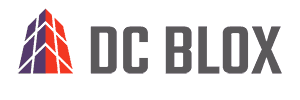The Power of Connectivity in a Digital World

Joe Wheeler EMC is an electric cooperative in North Alabama building a broadband network to service their communities. By partnering with DC BLOX and leveraging its regional network and local data centers in the Southeast, Joe Wheeler was able to avoid the cost of backhauling data traffic to Atlanta, build a resilient network solution, employ managed network services to reduce staff requirements, and position itself to offer a range of new services to its customers in the future.
Overview
Even prior to the FCC and USDA’s most recent Federal grant programs, Joe Wheeler EMC (JWEMC) recognized the need for reliable, high speed Internet and telephone service to their underserved communities. Motivated to solve the problem, JWEMC launched their own rural broadband initiative. They set out to become a reliable high-speed broadband service provider to further empower the communities they serve. With a reputation of providing amazing customer experiences and highly reliable electric service, which JWEMC feels differentiates them from other utility providers, they believe this trust will extend to the broadband services they will be delivering.
Although there are a couple of major carriers providing sporadic Internet access to some customers in the region, the service is based upon traditional copper technologies and is slow and unreliable. Customer service is also often lacking when problems occur. JWEMC knew that to improve service quality and to be prepared for the future, building an all-fiber network backbone with fiber to the home was the only way to go. And of course, providing service to all the 45,000 member businesses and residents in their area is also a requirement.
“Talk to DC BLOX! The level of expertise and customer service they provide is astounding. Being local, means not having to traverse hundreds of miles of fiber.”
Andrew Ragan, IT Manager at JWEMC
JWEMC began building its fiber network backbone in early 2020 with the goal of launching broadband and phone service to an initial group of customers by mid-2021 with network expansions planned to enable additional customers over the next 3-5 years. To get the project in motion, JWEMC selected several partners to help construct and deploy the fiber backbone and direct connections to businesses and residences.
JWEMC’s FlashFiber services are set to launch in June 2021. Upon full build-out, they plan to run over 3300 miles of fiber throughout the region providing all JWEMC members high-speed broadband internet – designed for the digital-era.
JWEMC was surprised by the scarcity of fiber providers available in North Alabama and the lack of route options, highlighting the insufficient geographic diversity of routes it knew it needed.
Challenges
Building a fiber network to provide Internet access and phone service to their 45,000 customers in Morgan and Lawrence Counties is a big challenge. With the help of the National Rural Telecommunications Cooperative (NRTC) and other partners, JWEMC began to lay the groundwork for their high-speed XGS-PON backbone network (10Gbps symmetric bandwidth).
In addition, becoming a broadband service provider for their customers meant the company needed to design and deploy geographically diverse fiber routes from their network to the Internet with at least 40Gbps of bandwidth to meet their requirements. Furthermore, JWEMC needed to diversify their carrier portfolio and minimize the mileage of fiber routes to the nearest Internet connection point in order to add redundancy and resiliency to ensure network reliability and performance.
However, JWEMC was surprised by the scarcity of fiber providers available in North Alabama (specifically in Morgan and Lawrence Counties), and the lack of route options, highlighting the insufficient geographic diversity of routes it knew it needed. JWEMC intended to source connections from their fiber huts in Trinity and Sommerville, Alabama to the Internet using one or two national carriers. They were also planning to deploy their gear in a colocation facility in Atlanta, and to connect to the Internet Exchange at 56 Marietta for direct access to cloud providers.
Unfortunately, JWEMC had difficulty getting the fiber providers (both local and national) to be transparent about their service routes. They would not provide their fiber route maps to prove that they were geographically diverse in the case of a switch failure or fiber cut.
“Don’t just take the word of the big providers. Really dig in to make sure that what you’re seeing is what you’re getting.
Andrew Ragan, IT Manager at JWEMC
Make the carriers prove their routes are actually diverse. Do your research and push for transparency or you could find yourself with an outage you thought you’d planned ahead for.”
At the same time, the JWEMC IT team was also struggling to determine how much manpower would be needed to manage the local fiber connections to sustain the high level of service quality their members were accustomed to. The ability to partner with an organization that could provide Managed Network Services would be ideal as the big carriers only offered the fiber network with very little support.
JWEMC’s initial plan meant traversing hundreds of miles of fiber, increasing latency and the risk for cuts/outages. They discovered the solution would also be very costly, would require additional staff to hire and manage, and would not satisfy their goals for resiliency and reliability. JWEMC’s long-time partner, Tri-Solve, a telecom cost containment and cost reduction company, understood JWEMC’s challenges and introduced them to DC BLOX.
Solution
DC BLOX consulted with JWEMC and Tri-Solve to carefully consider their requirements and proposed a cost effective and a less complex solution that met their needs. DC BLOX’s data center and connectivity hubs in Huntsville and Birmingham enabled JWEMC to keep their solution local, while achieving the level of performance and connectivity they required. After proposing alternative solutions that better served JWEMC’s original requirements, DC BLOX offered JWEMC the following services:
- Colocation in the DC BLOX Huntsville data center as a disaster backup location of its primary servers in JWEMC’s headquarters site
- Transit Services for reliable Internet connectivity from DC BLOX’s Huntsville and Birmingham data centers
- Managed Network Services to manage the deployment and ongoing operations for multiple carrier connections and associated Ciena Carrier Ethernet equipment
- Cloud Ramps to 56 Marietta for direct access to Microsoft Azure cloud services with the ability to reach other public cloud providers in the future
Specifically, DC BLOX is providing geo-diverse fiber routes from multiple carriers connecting JWEMC’s network to DC BLOX’s connectivity ecosystem. Implementing a mesh network design, JWEMC’s Trinity and Sommerville huts are now connected to DC BLOX Birmingham and Huntsville via AT&T and Spectrum Ethernet Private Lines (EPLs). JWEMC is also leveraging DC BLOX’s network with an Ethernet Private Line (EPL) between each of the data centers for a private backup path in case of fiber cuts or failures on one of the other routes. If AT&T or Spectrum has an outage, traffic is automatically re-routed and JWEMC’s customers will never notice.
“The DC BLOX team is very helpful, professional, responsive and knowledgeable. Their ability to think outside of the box was tremendously helpful. The portfolio that DC BLOX offers is comprehensive and I don’t know of any other company in Alabama that offers the quality of products they do.”
Craig Pearce, Partner at Tri-Solve
DC BLOX’s managed network services (powered by Ciena) provide real-time monitoring of latency, network traffic, and alerts. The managed network services help JWEMC by:
- Enabling JWEMC to watch traffic across their network and dynamically load balance, optimizing its network to ensure consistent performance
- Allowing DC BLOX to continuously monitor the network performance levels of each carrier network, preemptively addressing latency and availability issues
- Facilitating JWEMC’s ability to light their own dark fiber backbone in the future to increase the capacity of their infrastructure and reduce their reliance on 3rd party carriers
- Eliminating the need for JWEMC to negotiate and manage 3rd party carrier relationships and operations
“If it weren’t for DC BLOX, we would have to go to Atlanta, Ashburn, Dallas or Chicago to get the same level of service and bandwidth, without the guarantee that it’s truly reliable, and it would also cost a great deal more.”
Andrew Ragan, It Manager at JWEMC
Results
DC BLOX was not originally on Joe Wheeler EMC’s supplier list, but once introduced to the company, the outcome was a better and broader solution for the company and its customers than it had imagined.
Some of the most important results include:
- A highly resilient and reliable connectivity infrastructure that enables JWEMC to provide high quality services to their end customers
- Lower costs for connectivity compared to leasing private lines through Atlanta or other major markets
- Use of a local partner with the commitment and expertise to serve its customers far beyond what any national provider could deliver
- Avoidance of direct JWEMC staff costs to manage and monitor the network solution
- Ability for JWEMC to deploy its own dark fiber in the future to expand its network backbone
- Access to a robust connectivity ecosystem that allows JWEMC to offer a broad range of services to business and residential customers
JWEMC serves a number of large industrial companies in their region. In the future, they envision providing high-bandwidth connectivity options, point-to-point private lines, and connections to public cloud providers. According to Andrew Ragan, “we imagine offering a full portfolio of services that we can bring to the table for these customers through our relationship with DC BLOX.”
About DC BLOX
DC BLOX is a digital infrastructure provider in the Southeast that delivers integrated data center and fiber network solutions at scale to enable hyperscalers, enterprises, communications providers, and technology companies to offer enhanced digital services to their customers and accelerate the region’s economic growth. DC BLOX’s operating data centers are located in Birmingham, AL; Huntsville, AL; Chattanooga, TN; Greenville, SC; Myrtle Beach, SC, with new developments underway in Conyers, GA, Douglasville, GA, North Augusta, SC and Montgomery, AL. For more information, please visit www.dcblox.com, call +1.877.590.1684, and connect with DC BLOX on X, LinkedIn, Facebook, and Instagram.
Media Contact:
iMiller Public Relations for DC BLOX
Tel: +1.866.307.2510
Email: DCBLOX@imillerpr.com
About Joe Wheeler
Joe Wheeler EMC is an electric utility cooperative located in Trinity, Alabama with a mission to safely provide their members in Lawrence and Morgan Counties and surrounding communities with electric service at the lowest possible cost, consistent with sound business practices. Operations began on October 1, 1937, with 190 miles of line and 900 members. Today, Joe Wheeler EMC (JWEMC), is the fourth largest electric co-op in Alabama, with more than 4,200 miles of power lines, servicing 45,000 members. Through their ongoing dedication to economic development, serving industries both large and small, JWEMC sells more power than any other electric cooperative in Alabama.


